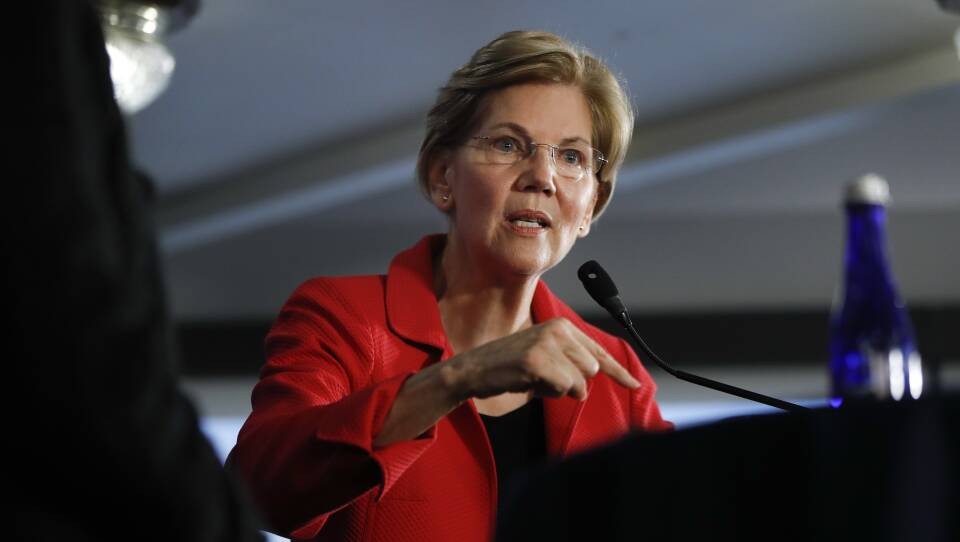Massachusetts Democrat Elizabeth Warren insists she's "not running for president in 2020, I'm running for the Senate in 2018." The senator also said Tuesday that she's urging Democrats to "focus on midterm elections and stop acting like the only important shiny object in the room is 2020."
But the broad anti-corruption and government reform bill she rolled out in a major speech at the National Press Club in Washington, D.C., felt much more like a key plank of a national presidential campaign platform than a portion of Warren's cruise toward a second Senate term.
"People don't trust their government to do right because they think government works for the rich, the powerful and the well-connected, and not for the American people," said Warren. "And here's the kicker: They're right."
Warren warned that a continued lack of faith in government "leads people to turn away from democracy," and creates "fertile ground" for the rise of authoritarianism.
Her speech is the latest indication that Democrats are increasingly viewing an anti-corruption reform message — a call to "drain the swamp," if you will — as an argument with resonance rivaling other messages, such as a promise to check President Trump's power or their more general push to improve the health care system.
"The examples are everywhere these days. A commerce secretary who acts like a cartoon version of a Wall Street fat cat," Warren said. "An EPA administrator who resigns in disgrace over corruption, only to be replaced with another EPA administrator who belongs on the coal barons hall of fame. A congressman facing indictment for insider trading."
Warren said the Trump era "has given us the most nakedly corrupt leadership this nation has seen in our lifetimes."
"But," she added, "They are not the cause of the rot. They are just the biggest, stinkiest example of it."
Warren offered scores of solutions in her broad proposal. Some, like a requirement for presidential candidates and all other federal officeholders to release their tax returns, were a direct response to scandals or ethical questions raised by the Trump administration's flouting of long-held disclosure and conflict of interest norms.
Others, like a lifetime ban on lobbying for former members of Congress, presidents, cabinet secretaries and other officeholders, have long been touted by good government advocates.
In all, the document distributed by Warren's office lists nearly 50 various changes, ranging from barring lawmakers from trading individual stocks to mandated live-streaming of federal appellate hearings.
With Warren's Democratic Party holding the minority in both the Senate and the House, the likelihood that her bill would come up for a vote, let alone a hearing this fall, is near zero. But Warren vowed to "fight for as many of these reforms as possible."
Early polls have shown Warren in a strong position if she entered what's expected to be a wide-open 2020 Democratic presidential primary field, so it's possible she'll be taking that fight to states like Iowa or New Hampshire early next year.
Copyright 2018 NPR. To see more, visit http://www.npr.org/.




